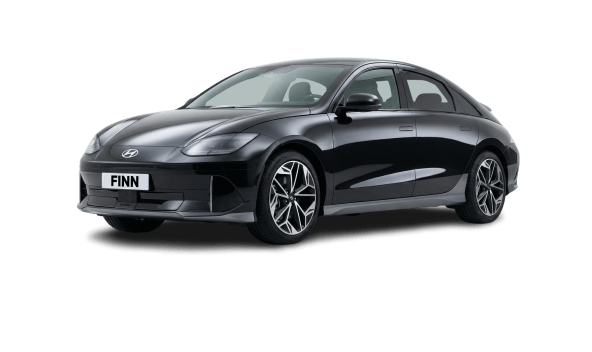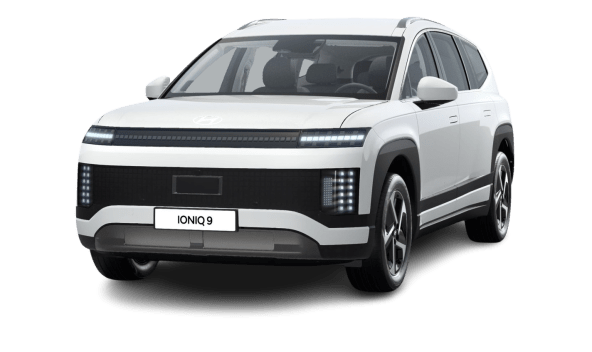Are Hyundais Reliable?
Hyundai ranks among the most popular automotive manufacturers, but is purchasing a Hyundai a smart move? Keep reading to find out if Hyundais are reliable.
Read time
10 minutes
Date
11.08.2023
Share

A South Korean brand founded in 1967, Hyundai Motor Company entered into a two-year partnership with Ford in 1968 to share assembly technology. Korean for “modernity,” Hyundai sought the leading edge with its own technology and bore the Sonata in 1985. One year later, the company introduced the Excel in North America, selling over 160,000 models within the first year. Fast-forward to today to find Hyundai as one of the top five largest automakers, with Genesis, Kia, and IONIQ brands under its belt, albeit with a few struggles along the way.
Hyundai continues its efforts to recuperate from its previous branding as an unreliable automotive manufacturer. A class-leading 10-year, 100,000-mile warranty draws many customers, in addition to a range of affordable models, including the sub-$20,000 Hyundai Venue. However, a recent 3.3 million-vehicle recall could minimize any gains the company recently made in the eyes of consumers. Many await a time when Hyundai’s quality standards equalize with affordability efforts to produce a more sustainable product.
Find your Hyundai
How car reliability is measured
Determining a car’s reliability relies on several factors, from how well it performs in safety and fuel-efficiency tests to how much it costs to own over a set time. Car depreciation costs can also vary between models, depending on which segment they compete in and several other considerations. However, reliability often comes down to the complex picture painted by the following sources:
- FuelEconomy.gov’s fuel-efficiency ratings
- Repairs and reliability ratings from RepairPal
- Safety inspection ratings from the Insurance Institute for Highway Safety (IIHS) and the National Transportation Highway Safety Administration (NHTSA)
- 5-Year Cost to Own from Kelley Blue Book (KBB)
- Dependability ratings from J.D. Power
Hyundai also recently received recognition from Consumer Reports for the 2023 Santa Fe, which was rated the top pick in the two-row SUV segment.
5 factors contributing to Hyundai’s reliability
Hyundai introduced its potent Hyundai Assurance warranty in 1999, alongside efforts to bring the quality of parts, materials, and assembly up to higher standards. The 2012 Hyundai Elantra won the North American Car of the Year and set the tone for the foreign automaker, a legacy upheld by the addition of the Kona and Palisade models in 2018. Read on for more information about Hyundai’s continued reliability.
1. Fuel economy ratings
Hyundai raises the bar regarding the number of fuel-efficient vehicles in its lineup. The IONIQ 5 was named the Car of the Year, Electric Vehicle of the Year, and World Car Design of the Year in the 2022 World Car Awards. The moniker also represents Hyundai’s dedication to a singular electric vehicle brand under the IONIQ nameplate.
According to FuelEconomy.gov, the 2023 Hyundai IONIQ 6 Long Range rear-wheel drive model achieves a 140 combined MPGe rating. The 153 city and 127 highway MPGe ratings are nearly matched by the 2023 Electric Kona, which tops 120 MPGe combined. Rounding out the pack is the 2023 Elantra Hybrid, which sips to the tune of 53 city and 56 highway MPG for a combined 54 MPG.
The 2023 Santa Fe and Tucson plug-in hybrids match the fuel savings of the rest of the Hyundai lineup, with 76 MPGe and 80 MPGe, respectively. Both models rely on the pairing of an electric and gas motor to produce power. All other Hyundai gas variants achieve over 20 MPG combined.
2. Average cost of repairs
RepairPal ranks Hyundai fourth out of 32 car brands, with a 4 out of 5 rating overall. The average annual cost of repairs for a Hyundai is $468, which is nearly $200 cheaper than the $652 average. Hyundais also visit the shop less (0.3 times annually) and have less chance of severe repairs (10%) than the average across all segments.
The Hyundai Assurance warranty often absorbs much of the basic repair costs. The 10-year, 100,00-mile powertrain warranty remains unmatched by any brand, though the five-year, 60,000-mile bumper-to-bumper warranty is more common. Certified pre-owned (CPO) vehicles retain both warranties and customers who purchased a 2012-2019 Hyundai hybrid initially have access to lifetime hybrid battery warranty coverage.
3. Safety ratings
Hyundai has long been a favorite of the IIHS. The IONIQ 5 received a Top Safety Pick+ rating for the 2023 model, as it received a “Good” rating in all crashworthiness categories. In addition, the 2023 IONIQ 6 and Palisade also won Top Safety Pick+ ratings. The 2023 Hyundai Sonata won a Top Safety Pick for its performance as well.
4. Cost of ownership
KBB’s five-year cost of ownership for Hyundai vehicles includes the following models:
- 2022 Santa Fe: $44,757 (lower than the 2024 Mitsubishi Outlander and 2022 Ford Bronco)
- 2022 Accent: $32,006 (similar to the 2024 Mitsubishi Mirage and 2022 Chevrolet Spark)
- 2022 Tucson: $40,277
- 2022 Santa Cruz: $29,921 (less than the 2022 Toyota Tacoma and 2022 Ford Ranger)
- 2022 Elantra: $37,102
- 2022 Kona: $36,416
- 2023 Venue: $34,260 (lowest in the segment)
The 2022 Hyundai Venue also won the KBB 5-Year Cost to Own Award for the third year since 2020. A unique crossover compact SUV, the Venue remains popular among various customer bases.
5. Dependability ratings
J.D. Power also highly rated many Hyundai models throughout the years:
- 2019 Sonata: Most Dependable Midsize Car
- 2019 Santa Fe: Most Dependable Midsize SUV
- 2022 Santa Cruz: Best Performance Midsize Pickup
- 2022 Palisade: Best Performance Upper Midsize SUV
- 2022 Accent: Highest Quality Small Car
The dynamic between the new and used Hyundai market stems mainly from sales tactics that drive consumers to purchase or lease new models. Increased consumption of newer models often lowers the price of used cast-offs, which tend to (over)populate the used car segment. However, J.D. Power’s U.S. Vehicle Dependability Study in 2022 showed that Hyundai ranked seven out of 33 brands, with fewer than average mechanical issues reported.
What are common Hyundai problems?
Hyundai has long struggled to align expert marketing techniques with the critical support of quality materials. From Hyundai’s ground-breaking hybrids and electric vehicles to the sedans and SUVs that make up the bulk of the import brand’s fleet, reliability ratings fall just a bit short compared to competitors. Take a closer look at some of the most common Hyundai problems identified by RepairPal below.
1. Engine crankshaft position sensor failure
Many Hyundai models from 2011 to 2016 experienced engine stalling and failure due to problems with the crankshaft position sensor. Another common problem is metal debris in the engine’s oil passages. In either scenario, the engine fails to operate, leaving drivers and their passengers stranded. This problem is most common with Hyundai Santa Fe and Sonata models.
2. Transmission
Several Hyundai owners have had issues with transmission gears slipping or failing to shift. The vehicle’s inability to shift correctly or smoothly can affect power and fuel economy ratings significantly. The Hyundai Tucson model is most associated with this particular issue, which can sometimes be resolved with software updates, adding the proper transmission lubricating fluid, or replacing the speed sensor.
3. Hydraulic electronic control units
According to the NHTSA, the Hydraulic Electronic Control Unit (HECU) in specific Kia models can short, creating a spark that could start a fire within the engine bay of the vehicle. However, since Hyundai and Kia share many components, Hyundai models may also be affected. Indeed, the NHTSA also found that the Anti-Lock Brake System (ABS) module on several Hyundai models can leak fluid and cause a similar electrical short with the same propensity to start an engine compartment fire.
4. Electrical problems
Various electrical bugs within many Hyundai models can wreak havoc on multiple systems. For example, a recent notice from the NHTSA alerted Hyundai owners (among many other automotive brands) that the seatbelt pretensioners and airbags installed by manufacturer TRW in certain models would fail to deploy in the event of an accident. Other electrical problems include the fuel gauge sensor failing and the engine not turning over because of a faulty electrical connection.
How long do Hyundai cars last?
Hyundais last, on average, about 200,000 miles, comparable to most life spans for mainstream automotive manufacturers. While no records have been broken for miles driven or years owned with a Hyundai, that’s not to say none are in progress. The Excel model, introduced in 1986 and discontinued in 2000, is only now nearing its 40th anniversary.
Reliable Hyundai models
Kelley Blue Book recently compiled a list of the best cars in various segments for 2023 and 2024. Below are highlights of the Hyundai models included on these lists:
- Best PHEV SUVs: 2023 Santa Fe Plug-In Hybrid and 2024 Tucson Plug-In Hybrid
- Best Hybrid Cars: 2024 Elantra Hybrid, 2023 Sonata Hybrid, 2022 IONIQ Hybrid
- Best Hybrid SUVs: 2023 Santa Fe Hybrid and 2024 Tucson Hybrid
- Best Midsize SUVs: 2023 Santa Fe and 2024 Palisade
- Best Electric SUVs: 2024 IONIQ 5
- Best Compact Cars: 2024 Elantra
- Best Subcompact Cars: 2022 Accent
The Hyundai Tucson and Santa Fe rank among the most reliable models under this brand. The Santa Fe entered the market in 2001. Additional lists of reliable Hyundai models include many from 2019 to the present, demonstrating the brand’s recent success in perfecting an affordable and reliable vehicle.
Which Hyundai models are least reliable?
The least reliable Hyundai models include:
- 2011-2014 Sonata
- 2013 and 2016 Elantra
If you have a deposit down on any of these models, it may not be too late to back out of a car deal. Re-inspect the car to ensure any necessary repairs have been completed, and request copies of related paperwork for your records. You can also re-negotiate your contract, depending on how you play your cards.
So, are Hyundai cars reliable?
Answering the question of reliability ultimately depends on each individual vehicle and its history. If someone asks if Audis are reliable, the answer often varies from person to person based on their experiences. However, regarding Hyundai's reliability, the brand continues to reveal its dedication to quality with each new model that leaves the production line.
Hyundai earns high marks in warranty coverage, affordability, and simplicity of repairs. However, those last vestiges of its unreliable reputation continue to plague the company and keep it from taking the top spot among import brands. If you plan on purchasing or leasing a Hyundai to trade or turn it in a few years later, your funds may be better spent saving up for a higher-quality vehicle that suits your needs.

Final thoughts
With the affordable and eco-friendly consumer markets cornered, Hyundai continues to uphold a merited reputation for reasonably reliable vehicles. The South Korean automotive manufacturer still fields its fair share of service bulletins and recalls, but recent model years have set the bar higher than ever. Many experts point to the brand’s dedication to the IONIQ electric brand as a step in the right direction, but the longevity of such a business plan remains to be seen.
If you want to dip your toes into the Hyundai realm, a Hyundai FINN car subscription can help you drive one of several models without any long-term commitments. When you get a FINN car subscription program, you get to choose which vehicle you want, down to the trim and color. Six and 12-month terms give you plenty of time to work out all the kinks before you start looking or rule out that model altogether.







